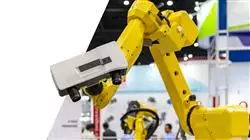University certificate
The world's largest faculty of information technology”
Description
Specialize in the various applications of Deep Learning to contribute to the technological transformation of society"

Deep Learning has enabled the advancement of areas such as Computer Vision, Natural Language Processing and Robotics. Currently, the application of these techniques is increasingly in demand in different sectors such as Medicine, Engineering, Marketing or Security, among others. For example, in Medicine, Deep Learning has proven to be very useful in the early detection of diseases through the analysis of medical images. In Marketing, it can be used to make accurate predictions of consumer behavior and personalize offers.
These are just a few examples that illustrate the importance of specialization in this area. Thus, the postgraduate diploma in Deep Learning Applications has been designed, a program that aims to prepare professionals capable of using these techniques in different contexts. The degree consists of modules that address the most popular applications of Deep Learning and enrollees will be updated in the design and training of recurrent neural networks, Autoencoders, GAN and Diffusion Models, among other key points.
In addition, the degree uses the Relearning pedagogical methodology to assimilate the concepts more quickly. Likewise, the flexibility to organize academic resources allows students to adapt their study time to their personal and professional needs. And always completely online.
You will develop highly demanded skills to excel in an increasingly global industry such as Deep Learning"
This postgraduate diploma in Deep Learning Applications contains the most complete and updated educational program on the market. Its most outstanding features are:
- The development of case studies presented by experts in Deep Learning Applications
- The graphic, schematic and eminently practical contents with which it is conceived gather technological and practical information on those disciplines that are essential for professional practice
- Practical exercises where self-assessment can be used to improve learning
- Its special emphasis on innovative methodologies
- Theoretical lessons, questions to the expert, debate forums on controversial topics, and individual reflection assignments
- Content that is accessible from any fixed or portable device with an Internet connection
Gain a competitive advantage in the job market by generating text through recurrent neural networks"
The program’s teaching staff includes professionals from sector who contribute their work experience to this educational program, as well as renowned specialists from leading societies and prestigious universities.
Its multimedia content, developed with the latest educational technology, will provide the professional with situated and contextual learning, i.e., a simulated environment that will provide an immersive education programmed to learn in real situations.
The design of this program focuses on Problem-Based Learning, by means of which the professional must try to solve the different professional practice situations that are presented throughout the academic course. For this purpose, the student will be assisted by an innovative interactive video system created by renowned experts.
Expertly evaluate the use of neural networks to improve the accuracy of an agent when making decisions"

Implement advanced reinforcement algorithms to improve agent performance with this postgraduate diploma"
Objectives
By enrolling in this 450-hour postgraduate diploma, students will have the opportunity to acquire specialized skills and knowledge that will enable them to advance the field of Deep Learning in a meaningful way. For this reason, TECH focuses on offering innovative and easily accessible pedagogical resources to support students in achieving their goals. All with the aim of enabling them to perform with solvency in such a demanding competency area as Deep Learning.

Reach the objectives proposed by TECH and develop practical applications of Natural Language Processing with RNN"
General Objectives
- Fundamentalize the key concepts of mathematical functions and their derivatives
- Apply these principles to deep learning algorithms to learn automatically
- Examine the key concepts of Supervised Learning and how they apply to neural network models
- Analyze the training, evaluation and analysis of neural network models
- Fundamentals of the key concepts and main applications of deep learning
- Implement and optimize neural networks with Keras
- Develop expertise in the training of deep neural networks
- Analyze the optimization and regularization mechanisms required for deep neural network training
Specific Objectives
Module 1. Processing sequences using RNN and CNN
- Analyze the architecture of recurrent neurons and layers
- Examine the various training algorithms for training RNN models
- Evaluating the performance of RNN models using accuracy and sensitivity metrics
Module 2. NLP Natural Language Processing with RNN and Attention
- Generating text using recurrent neural networks
- Train an encoder-decoder network to perform neural machine translation
- Developing a practical application of natural language processing with RNN and attention
Module 3. Autoencoders, GANs, and Diffusion Models
- Implementing PCA techniques with a linear incomplete autoencoder
- Use convolutional and variational autoencoders to improve the results of autoencoders
- Analyze how GANs and diffusion models can generate new and realistic images new and realistic images

You will be a reference in the implementation of PCA techniques with an incomplete linear automatic encoder"
Postgraduate Diploma in Deep Learning Applications
Artificial intelligence and Deep Learning are transforming the business and technological world. Advanced knowledge of these technologies is increasingly demanded by companies. Professionals with expertise in Deep Learning applications are in high demand in today's market. In TECH's Postgraduate Diploma in Deep Learning Applications, students will acquire practical knowledge to apply these technologies.
In this program, students will acquire practical knowledge to apply these technologies.
In this program, students will learn to apply Deep Learning techniques to solve complex problems in areas such as computer vision, natural language processing, time series prediction and speech recognition. They will delve into the use of software tools and platforms for implementing Deep Learning solutions. They will address the ethical and legal challenges related to these technologies. Graduates of this program will be prepared to develop and lead artificial intelligence projects. As well as to work in companies and research projects that require advanced skills in Deep Learning applications.







